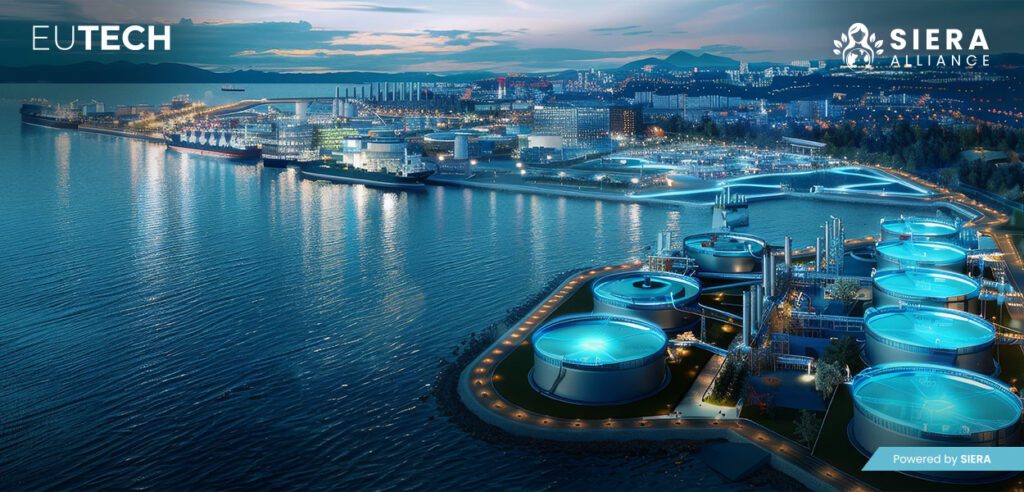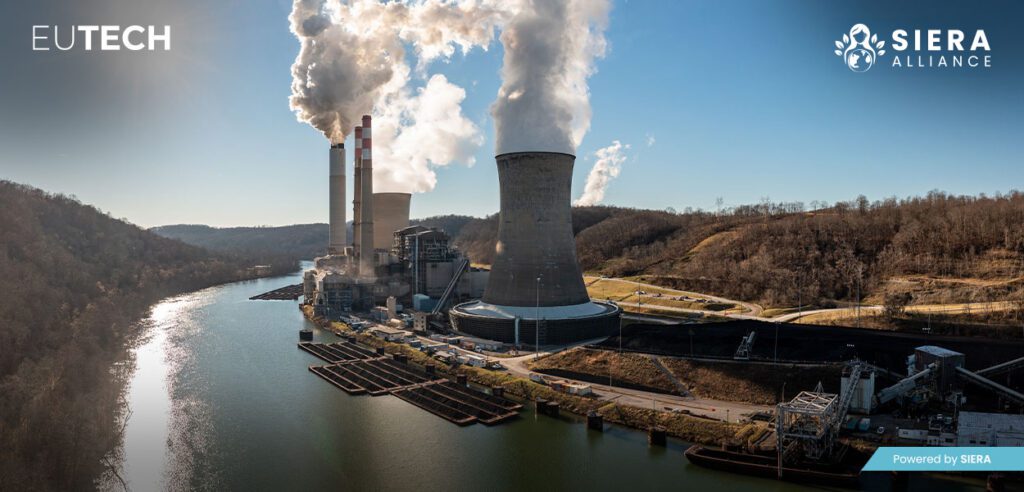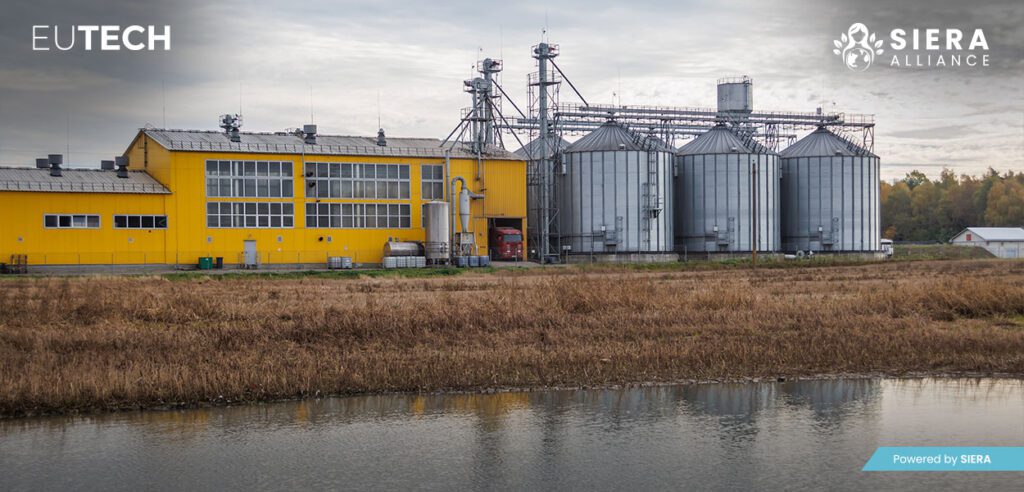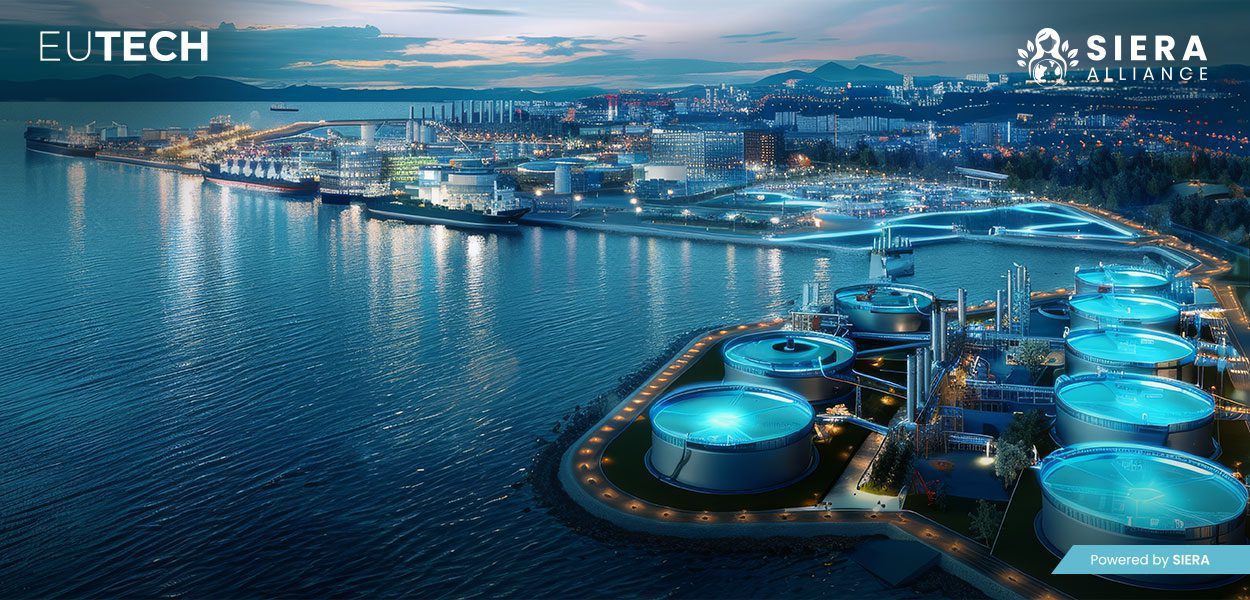Balancing Energy Needs and Marine Sustainability
Water and marine ecosystems play a critical role in energy generation, but the growing reliance on these resources poses significant environmental challenges. To address these, the industry must adopt innovative techniques such as tidal energy, wave energy, and advanced marine biodiversity protection methods. These solutions not only ensure compliance with ESRS E3 standards but also align with global sustainability goals.
On 3rd October 2024, the EUTECH – Energy Council powered by SIERA Alliance hosted a webinar titled “Sustainable Water & Marine Resource Management in Energy Generation.” Moderated by Dr. Igor Gladkov, Director at the European Technology Chamber, the session featured insights from renowned experts on managing marine resources while advancing renewable energy.

Key Challenges in Water & Marine Resource Management
The webinar featuring panelists, Pina Schlombs (Sustainability Lead at Siemens Digital Industries Software), Rafael Navarro (Sustainability and Energy Manager at Johnson Controls), and Clara Estevez (Environmental Consultant at CircularWorks), highlighted the following pressing challenges:
The webinar featuring Prof. Roger A. Falconer (Emeritus Professor of Water & Environmental Engineering at Cardiff University) and Giulio Marin (Environmental Manager at RWE), highlighted critical challenges:
1. Water Overconsumption in Energy Plants
Energy generation plants are among the largest consumers of freshwater, straining local water systems. Overuse of water for cooling purposes reduces availability for local communities and disrupts natural water cycles.
2. Thermal Pollution
The discharge of heated water from power plants into rivers or oceans raises water temperatures, disrupting aquatic ecosystems and decreasing biodiversity.
3. Marine Ecosystem Contamination
Offshore energy projects, such as tidal energy and wave energy installations, risk contaminating marine ecosystems through spills and hazardous emissions.
4. Groundwater Depletion
Over-extraction of groundwater for energy production can lead to the depletion of aquifers, reducing water availability for agriculture and human consumption.
5. Biodiversity Loss
Offshore projects like wind farms disrupt marine habitats, posing threats to sensitive species and ecosystems.

Practical Solutions for Sustainable Energy Generation
The webinar proposed actionable strategies to address these challenges, focusing on innovative technologies and best practices:
1. Implementing Energy Audits for Water Efficiency
Energy audits aligned with ISO 50001 standards help identify inefficiencies in water use, enabling companies to optimize consumption and reduce environmental impacts.
2. Advancing Thermal Discharge Management
Using advanced cooling technologies and monitoring systems ensures that water discharged from plants complies with temperature regulations, protecting aquatic ecosystems.
3. Promoting Marine Biodiversity Protection
Biodiversity impact assessments and monitoring programs are essential for minimizing disruptions to marine life. Integrating these into project planning enhances sustainability.
4. Harnessing Renewable Marine Energy
Adopting wave energy converters and tidal energy systems reduces reliance on fossil fuels while supporting clean energy goals.
5. Optimizing Groundwater Use
Sustainable sourcing practices and water-saving technologies ensure that energy production does not deplete critical groundwater supplies.
Transformation Opportunities in Energy Generation
Adopting sustainable water and marine resource management practices unlocks significant benefits for energy companies:
| Transformation Area | Benefits | Impact |
| Cost Savings | Reduces operational costs through efficient water use and compliance. | Avoids fines and lowers production costs. |
| Access to Green Financing | Attracts investment through compliance with environmental standards. | Supports innovation and profitability. |
| Improved Stakeholder Trust | Builds confidence among regulators and communities through transparency. | Enhances brand reputation and market competitiveness. |
| Operational Efficiency | Integrates advanced technologies to optimize energy and water use. | Boosts long-term sustainability and productivity. |
| Enhanced Biodiversity Conservation | Protects marine ecosystems and aligns with global sustainability goals. | Minimizes environmental impact while enabling renewable energy expansion. |
Best Practices for Marine Resource Management
- Adopt Circular Economy Models: Incorporate waste reduction and resource recovery strategies to enhance efficiency.
- Leverage Advanced Monitoring Tools: Use AI and IoT systems for real-time tracking of water and energy usage, ensuring compliance with environmental regulations.
- Foster Collaboration Across Sectors: Partner with regulators, NGOs, and industry peers to promote best practices for marine sustainability.
- Prioritize Research and Development: Invest in innovative solutions like ocean thermal energy conversion to drive sustainable energy advancements.

Upcoming Events and Opportunities
Stay updated on future events hosted by the Energy Council powered by SIERA Alliance. For insights into renewable energy and sustainable practices, explore the SIERA Alliance Event Calendar. Join us in driving innovation and sustainability in energy generation.
Upcoming Events and Opportunities
Stay updated on future events hosted by the Energy Council powered by SIERA Alliance. For insights into renewable energy and sustainable practices, explore the SIERA Alliance Event Calendar. Join us in driving innovation and sustainability in energy generation.








